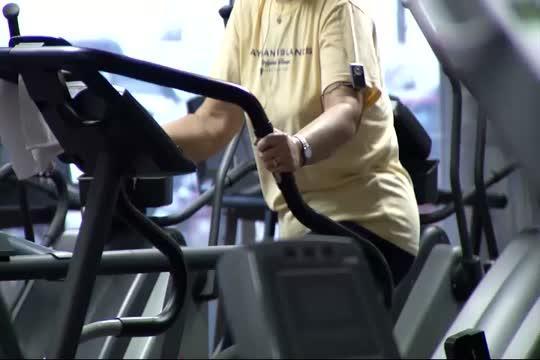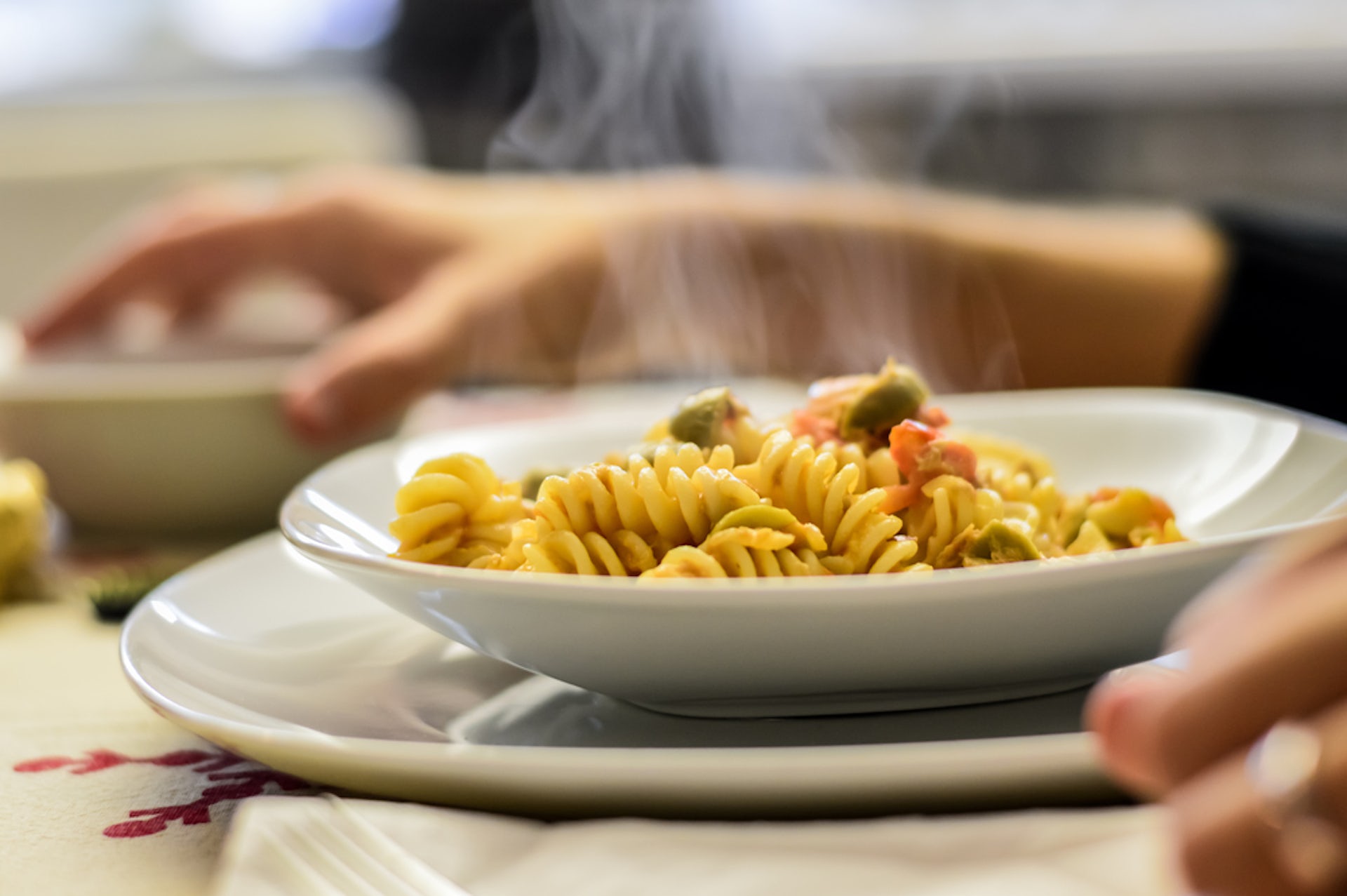You don't need a gimmick, you do need a little willpower. Commercial gyms love this time of year because everyone joins to honor their New Year's Resolution, they even pay stupid initiation fees, and then most are done a month later.
An easy way to save money on a gym membership, in order of difficulty:
1. Chew some gum. I had a grandmother who always said to eat until you were full and I had a grandmother who said to eat when you are hungry and stop when you are not. Both lived a long time and though their approaches sound opposed, they were both in control of their appetites - not the other way around. If you have trained your brain to associate watching a movie with eating Doritos, for example, and believe you are actually hungry, your appetite is in control of you.

Real epidemiology(a), with actual weight of evidence, has found that chewing gum is linked to appetite suppression, particularly for sweet snacks. The belief is that the act of chewing triggers the release of hormones related to satiety, contributing to a feeling of fullness and potentially curbing excessive eating habits.
That's it, a low-cost, low-effort way to conquer 'appetite' feelings in your brain until your brain has retrained itself to not associate behavioral mechanisms with nutrition.
2. Join a Facebook Buy Nothing group and exercise privately. It is almost certain that someone on your community is giving away a Bowflex, an ab machine, or an elliptical machine someone in their home bought aspirationally. Don't bother with a Peloton, their subscription may be as much as a gym membership and their ads are geared toward wealthy people who like to show off their dance moves on bikes. Get something you can use with a radio or if you have a TV.

When my son said he wanted to join a gym, I had to wonder if he just wanted a new way to meet girls (he won't) so I got a free set of stuff from my Buy Nothing - and he uses it. So do I. He hasn't brought up a gym membership since so I saved both ways.
Set an alarm for when you want to work out. Stick to it. Muscle weighs more than fat so forget about 'losing weight' in this scenario, if you lost 20 lbs. of fat and gained 20 lbs. of muscle, your weight is the same but your fitness is way up.
3. Go for walks. You don't have to be thin to be fit. It is nice cosmetically as a side effect but I grew up in a rural town where almost everyone worked on their land. They were not any more or less thin than anyone else but they sure were fit.

Walking for a year will result in a dramatic improvement in your physical and perhaps mental well-being. But it is a slow process. It's low impact, but takes real discipline to see benefits.
4. Cut your food in half. Do you eat two hot dogs? I buy those giant Nathan's ones and it is difficult to eat only one. My sons can eat multiples, they are fit and have high metabolism but I am old so that's a bad idea.
A guaranteed way to lose weight is to cut your usual food portion in half. You don't have to eliminate anything, despite what a New York Times editor wants to promote with their bestseller list, you don't need to buy meal plans that some company wants to sell you. Just cut it in half. When I go to breakfast, I have done it for so long that when the waitress brings my check she brings a to-go box by rote.
5. Give up sugars for 30 days. I did this a few times and it was easier than I thought. Like another other "crash" diet, this isn't going to be a benefit after a month, and if you are the kind of person who immediately reverts to their old ways, it won't make much difference, but if you want to lose a lot of weight fast, eat meat and cheese. Then go back to a normal diet after 30 days.

Anyone who says it will help after that is either selling something, or they are engaging in lots of other healthy behaviors and picked 'no carb' as their magical totem for the success.
5. Expert mode - only drink water after 6pm.
This is obscure biology but if you are not a person who goes out, it is pretty achievable. It is not bizarre like intermittent fastest, but there is science in the concept of letting your organs go into low-power mode.
If you drink only water, your kidneys and such are still doing things, but a lot of your body's energy production mechanisms get a break. And if you are sleeping 8 hours of the time before breakfast, it's not a long period of time to go without food. If you are a coffee person and do that before eating, that is basically water but it fills in the 'boredom' gap before you eat in the morning.
6. The hardest - real fasting, not intermittent.
I used to be in competitive martial arts and I am tall but wanted to fight lightweight because our school had other good people in heavier weight classes, so at 6'2" I needed to be 163 lbs. To stay there, every two weeks I would fast for four days, only water. The stomach learns your habits so the first time I did it I had 'hunger pangs' - then they went away. I even had more energy. The next time I did it, the same process occurred; 24 hours of thinking about food and then nothing. After a few repeats, not even that.
I was never "hangry", Google can't tell me who came up with that, maybe a food marketing executive. I did everything my friends did playing D&D except eat chips and drink soda.
This is not going to work but if you have any sort of blood sugar issue, despite what grifters selling supplements will try to tell you.
Notes:
(a) For no reason anyone in the science community can figure out, the activist epidemiologists who have overtaken the International Agency for Research on Cancer declared war on chewing gum this year. Lacking any sort of scientific basis for their (probably lawyer-driven) desire to claim that artificial sweeteners used in nearly all gum 'cause' cancer, they cobbled together hand-picked mouse studies and responses from food surveys - written by people on the Working Group or their friends - and issued a monograph.





Comments